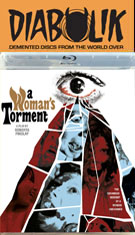
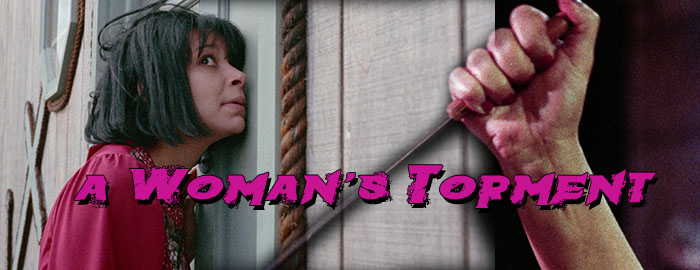
Color, 1977, 85 mins. 10 secs. / 87 mins. 13 secs.
Directed by Roberta Findlay
Starring Tara Chung, Jennifer Jordan, Jake Teague, Jeffrey Hurst, Marlene Willoughby, Michael Gaunt, Crystal Sync, Clea Carson
Vinegar Syndrome (Blu-ray & DVD) (US R0 HD/NTSC) / WS (1.85:1) (16:9), Alpha Blue Archives (DVD) (US R0 NTSC)
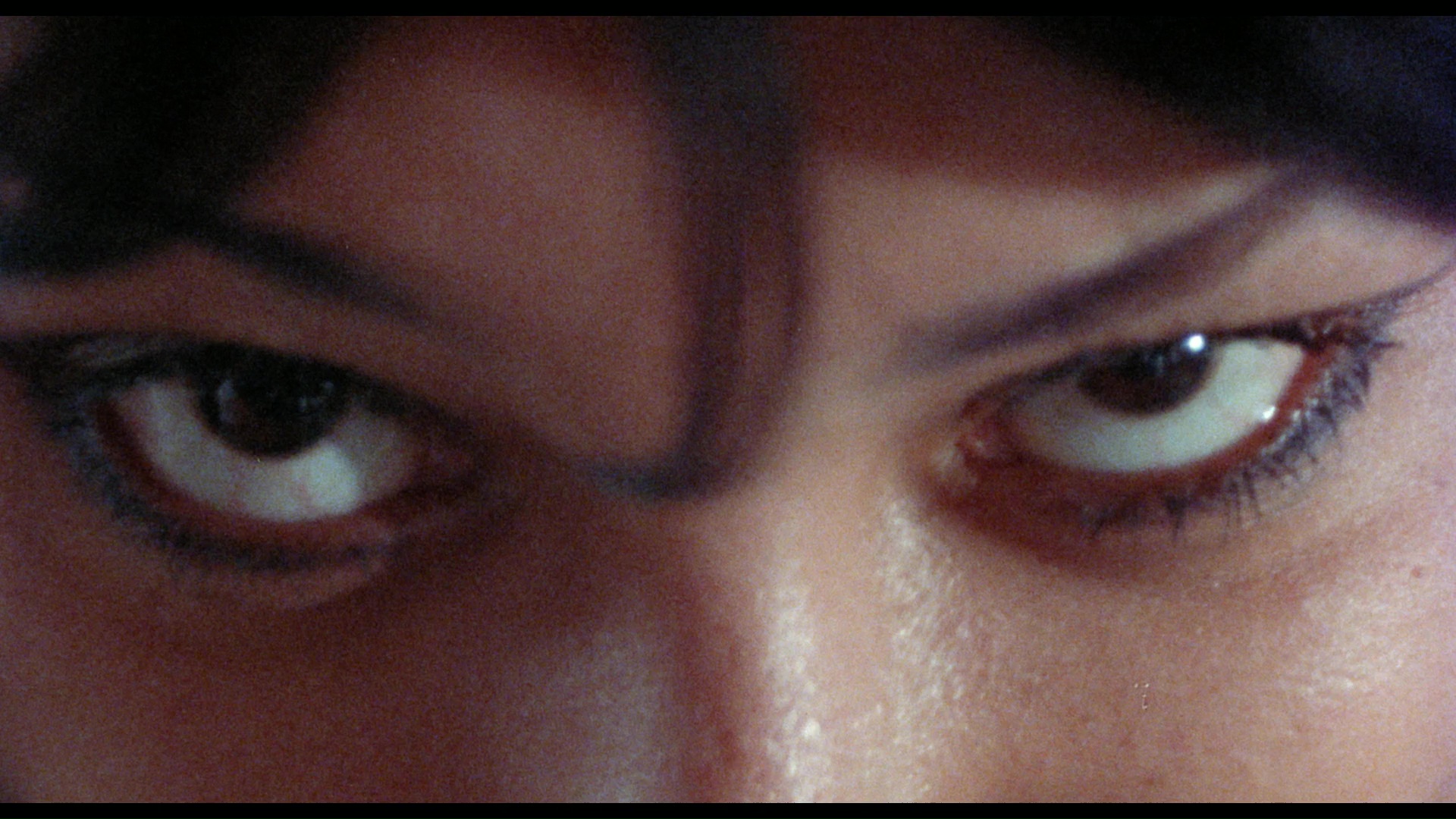 fascinating pioneer of exploitation
fascinating pioneer of exploitation 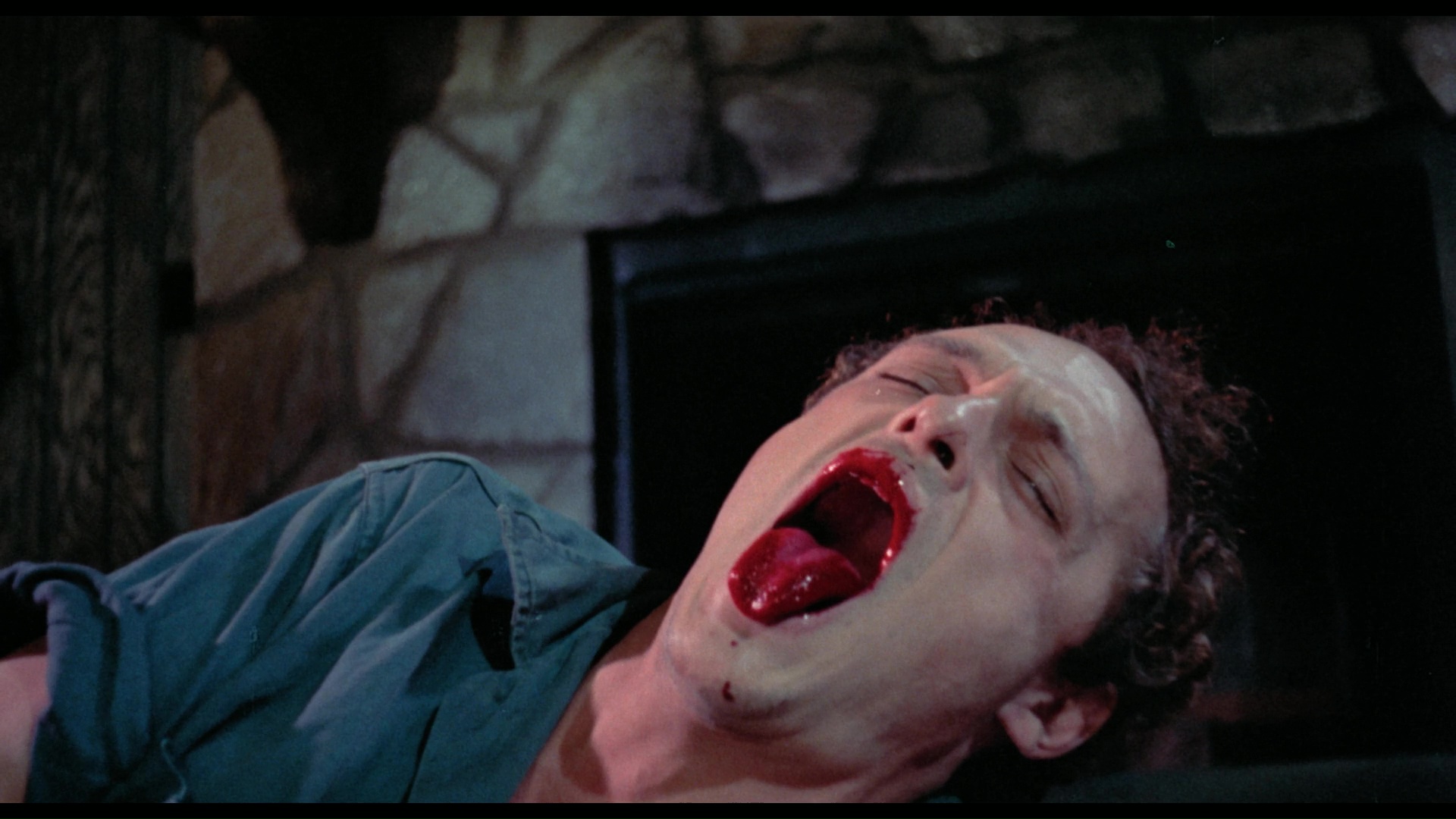 cinema whose reputation has been steadily rising for the past few decades, Roberta Findlay progressing from producing, shooting, and sometimes acting in her husband Michael's now-classic roughies in the '60s to become a fascinating cinematic voice in her own right. Though she shared director credit on a handful of softcore titles like Mnasidika and Take Me Naked, she really became prolific during the '70s wave of mainstream theatrical play for hardcore films. Sometimes credited as "Robert Norman," she was largely uncomfortable shooting explicit sex but used the commercial obligation to experiment with her own ideas about storytelling and visual language, which makes some of her films like Fantasex, Anyone But My Husband, and the delirious Angel Number 9 markedly different from their peers. Findlay's roughie background really came to the forefront with one of her most notorious films, A Woman's Torment, which is really better described as a twisted, gory horror film that occasionally hits the brakes for sex scenes. Still shocking today, it packs a transgressive punch and features a number of still-startling visual ideas.
cinema whose reputation has been steadily rising for the past few decades, Roberta Findlay progressing from producing, shooting, and sometimes acting in her husband Michael's now-classic roughies in the '60s to become a fascinating cinematic voice in her own right. Though she shared director credit on a handful of softcore titles like Mnasidika and Take Me Naked, she really became prolific during the '70s wave of mainstream theatrical play for hardcore films. Sometimes credited as "Robert Norman," she was largely uncomfortable shooting explicit sex but used the commercial obligation to experiment with her own ideas about storytelling and visual language, which makes some of her films like Fantasex, Anyone But My Husband, and the delirious Angel Number 9 markedly different from their peers. Findlay's roughie background really came to the forefront with one of her most notorious films, A Woman's Torment, which is really better described as a twisted, gory horror film that occasionally hits the brakes for sex scenes. Still shocking today, it packs a transgressive punch and features a number of still-startling visual ideas. 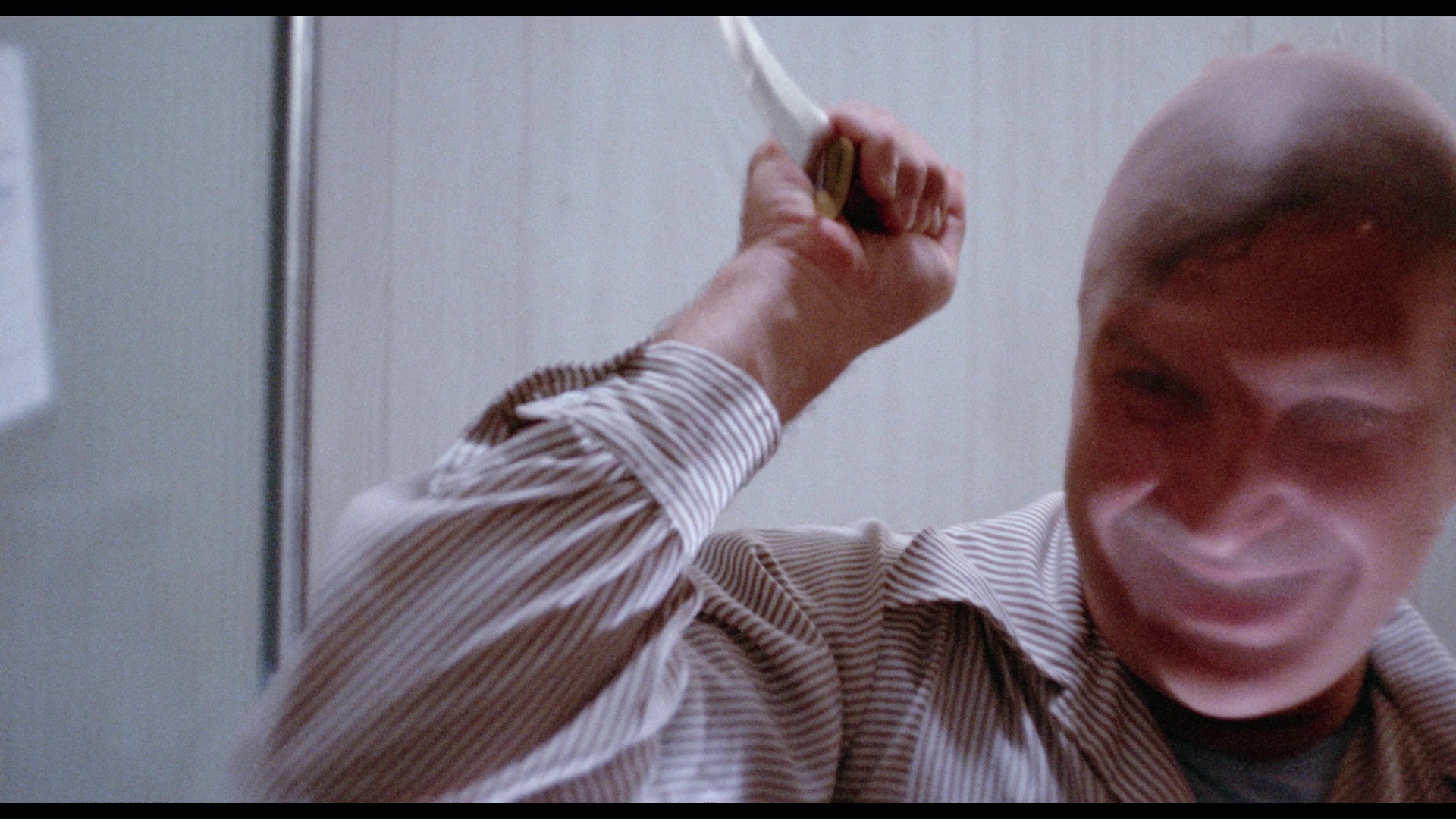 the obvious discomfort of his wife, Estelle (Jordan), when they're in bed, and his sneaky relationship with Frances (Sync) is falling apart as well as she goes back into
the obvious discomfort of his wife, Estelle (Jordan), when they're in bed, and his sneaky relationship with Frances (Sync) is falling apart as well as she goes back into 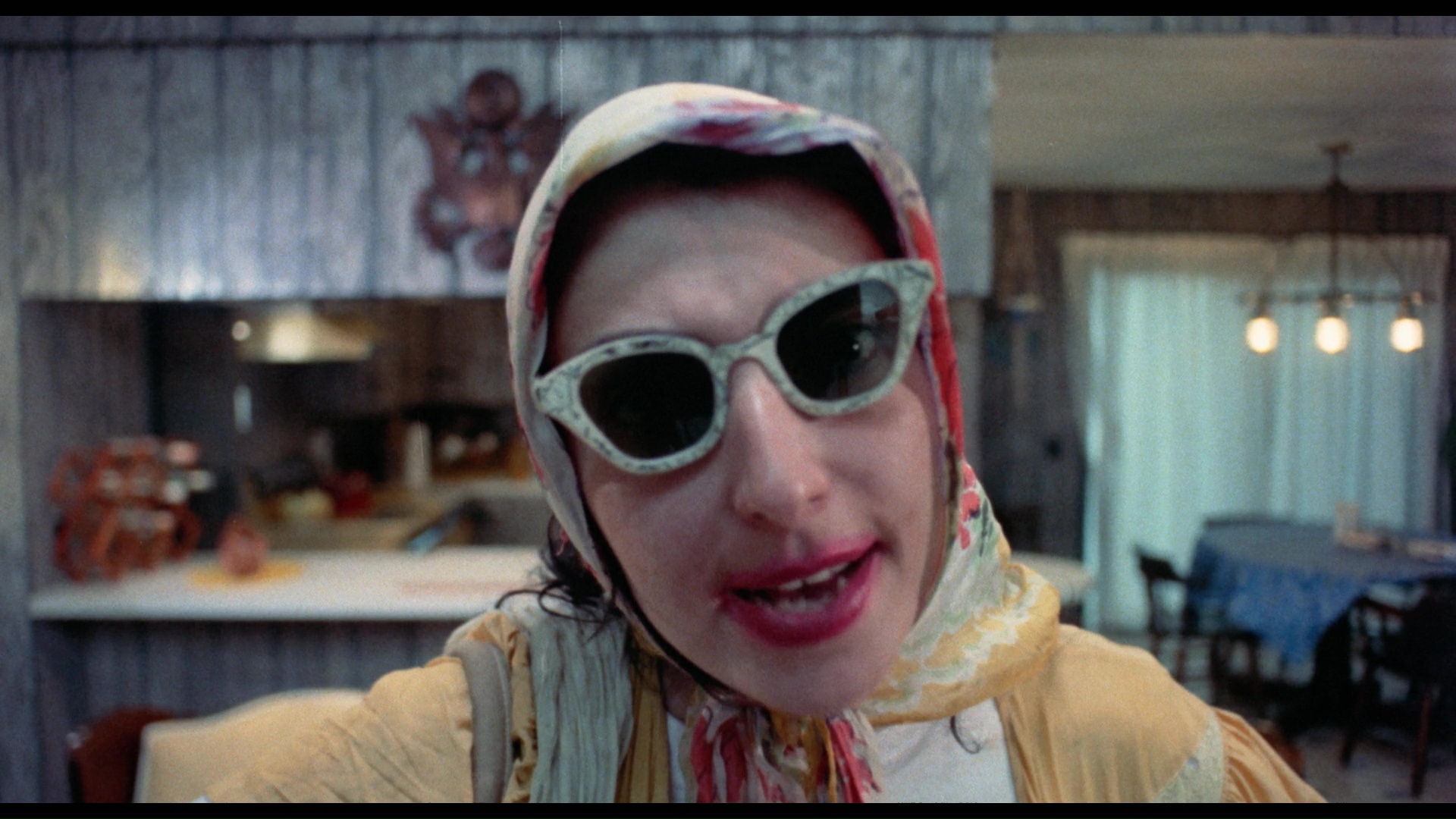 the arms of her own husband, Don (Hurst). However, that drama is nothing compared to what's going on upstairs with Frances's sister, Karen (Chung), who's mentally deteriorating and causing disruption about whether she should be put into a mental institution. One night when she overhears a domestic squabble, Karen packs up a suitcase and takes off for a family beach house where she makes herself at home and promptly has hallucinations about a masked attacker as she showers. That violence filters into real life when electrician "Larry the Lineman" (Gaunt) shows up and triggers her homicidal urges during a sexual encounter that crosses the line, but that's just the start of Karen's nightmare as the property starts to fill up with corpses.
the arms of her own husband, Don (Hurst). However, that drama is nothing compared to what's going on upstairs with Frances's sister, Karen (Chung), who's mentally deteriorating and causing disruption about whether she should be put into a mental institution. One night when she overhears a domestic squabble, Karen packs up a suitcase and takes off for a family beach house where she makes herself at home and promptly has hallucinations about a masked attacker as she showers. That violence filters into real life when electrician "Larry the Lineman" (Gaunt) shows up and triggers her homicidal urges during a sexual encounter that crosses the line, but that's just the start of Karen's nightmare as the property starts to fill up with corpses. 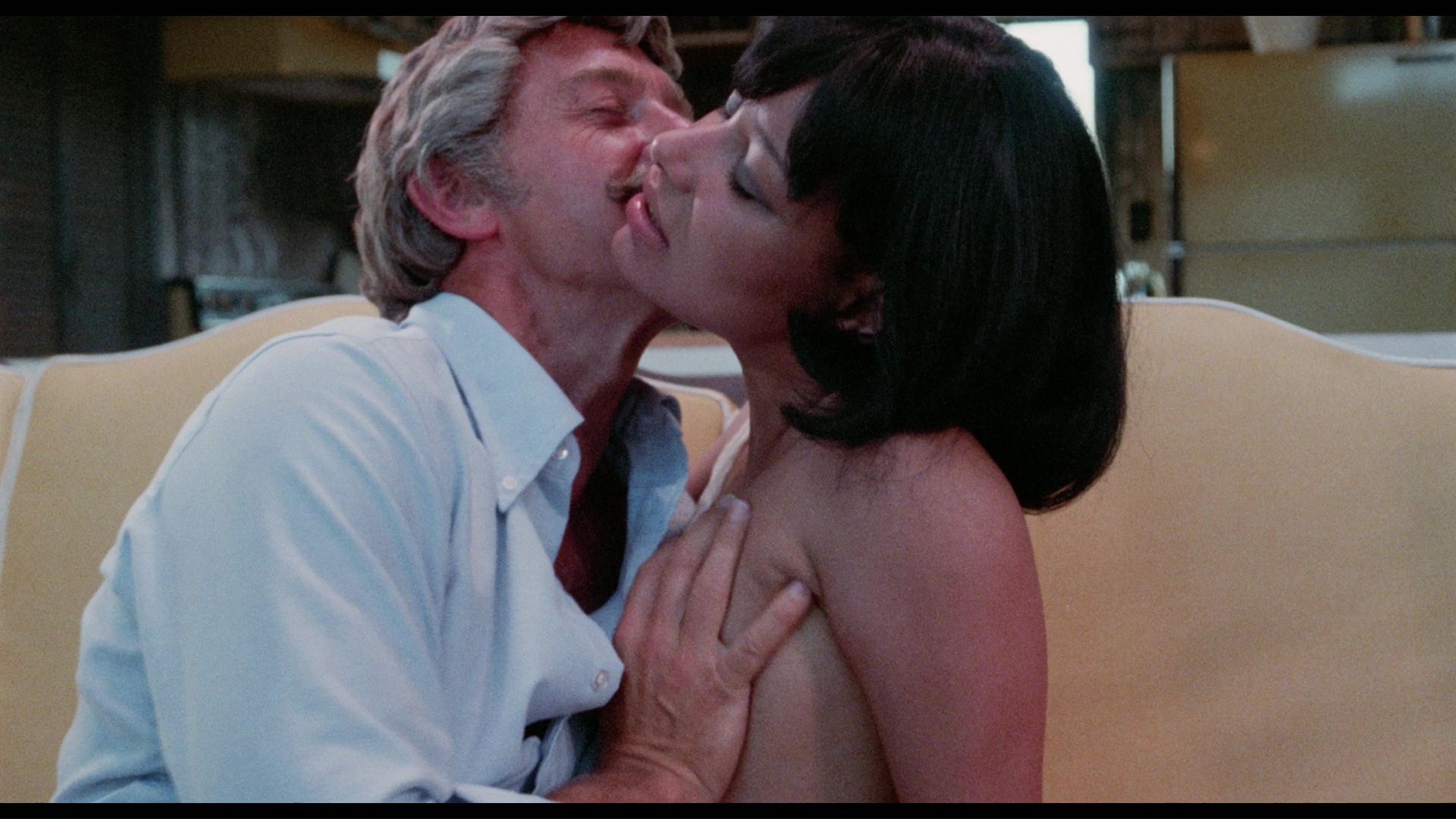 and occasionally dreamy artistry (including a very Jean Rollin-esque finale) give the film an identity all its own, with Findlay obviously putting far more effort into
and occasionally dreamy artistry (including a very Jean Rollin-esque finale) give the film an identity all its own, with Findlay obviously putting far more effort into 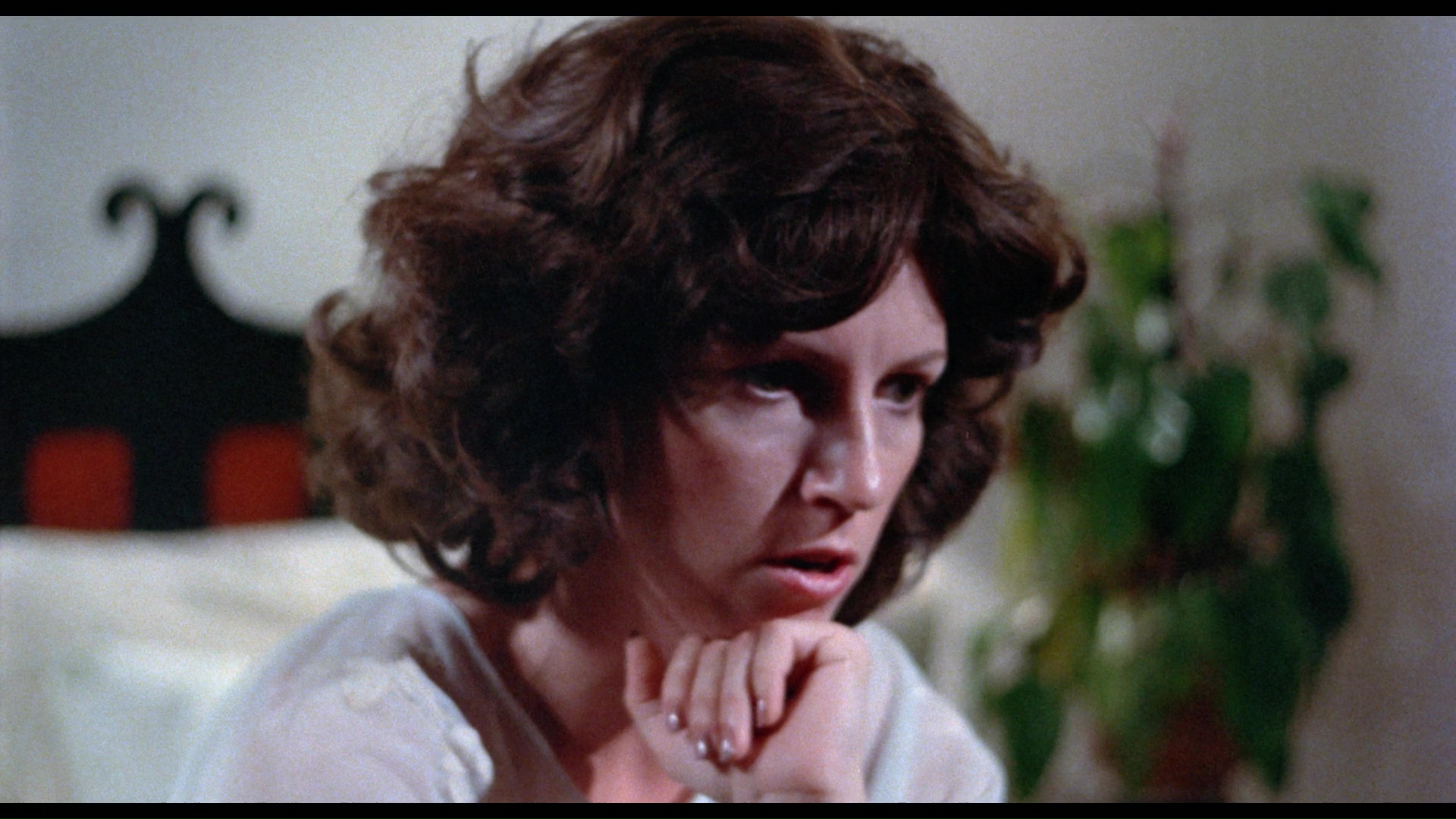 the dialogue scenes and shock moments than the sex scenes (which is betrayed by one of the worst fake money shots in movie history, complete with visible tubing). In fact, one of the era's hottest up and comers at the time, Marlene Willoughby, not only keeps her clothes on but puts on a wild outfit as a snooping neighbor who barges into the house at the worst possible moment. You'd be hard pressed to pinpoint much in the film as erotic, with Chung's frenzied self-gratification in the shower and on the beach coming off as quite terrifying and unlike anything a male filmmaker would have tried to pull off at the time. Adding to the atmosphere is a strong, melancholy music score by regular Findlay composer Walter Sear, resulting in a film that's tough to shake off if you catch it in the right frame of mind.
the dialogue scenes and shock moments than the sex scenes (which is betrayed by one of the worst fake money shots in movie history, complete with visible tubing). In fact, one of the era's hottest up and comers at the time, Marlene Willoughby, not only keeps her clothes on but puts on a wild outfit as a snooping neighbor who barges into the house at the worst possible moment. You'd be hard pressed to pinpoint much in the film as erotic, with Chung's frenzied self-gratification in the shower and on the beach coming off as quite terrifying and unlike anything a male filmmaker would have tried to pull off at the time. Adding to the atmosphere is a strong, melancholy music score by regular Findlay composer Walter Sear, resulting in a film that's tough to shake off if you catch it in the right frame of mind. 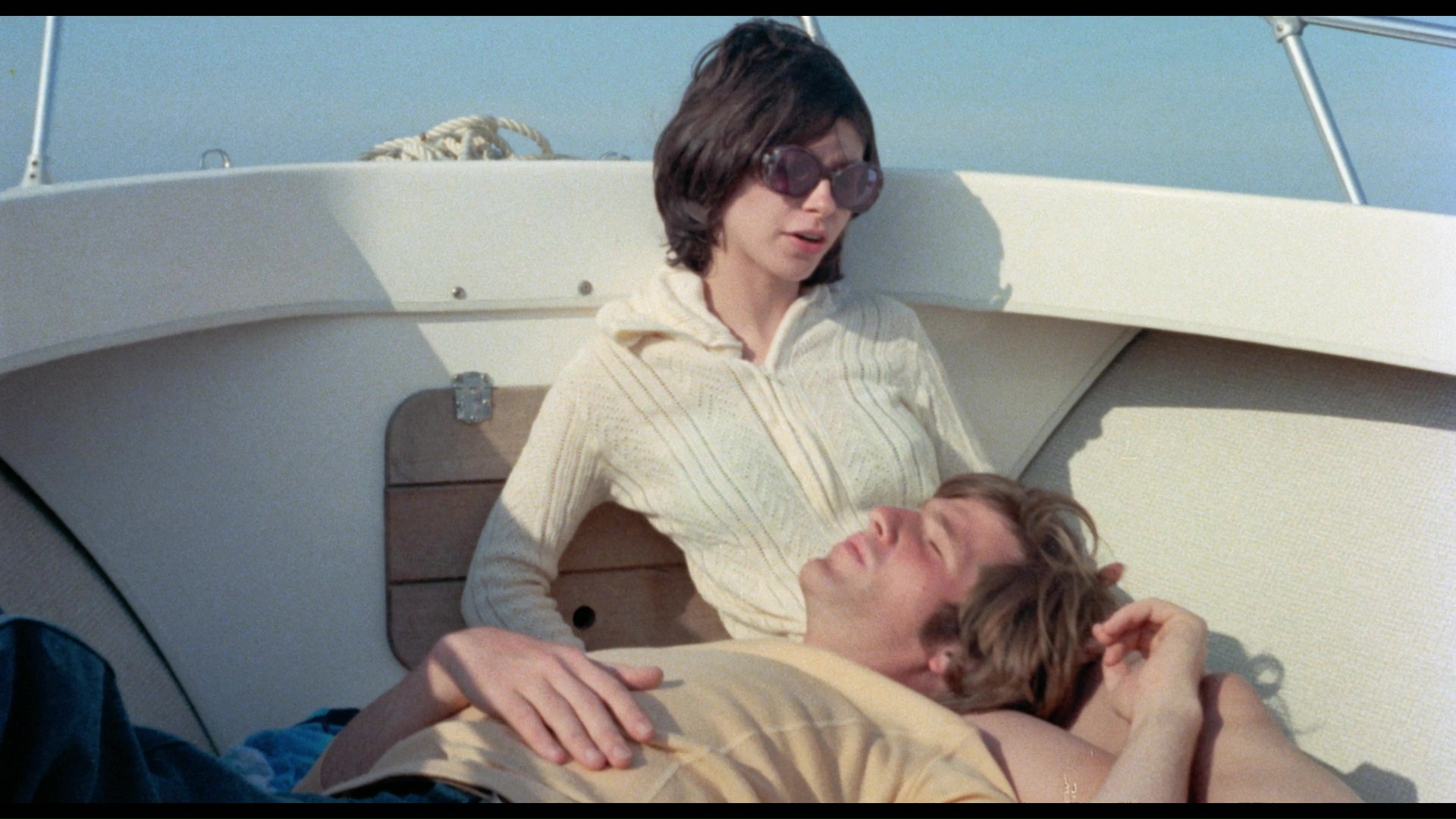 from Vinegar Syndrome (transfered from the original negative) offers a major rehabilitation
from Vinegar Syndrome (transfered from the original negative) offers a major rehabilitation  for the film and looks really gorgeous throughout. A handful of shots are intentionally grainy, and they've been left intact here; colors look strong and accurate, and the beach landscape shots in particular look very impressive and beautiful in HD. The DTS-HD MA English mono track also sounds excellent, and optional English SDH subtitles are provided.
for the film and looks really gorgeous throughout. A handful of shots are intentionally grainy, and they've been left intact here; colors look strong and accurate, and the beach landscape shots in particular look very impressive and beautiful in HD. The DTS-HD MA English mono track also sounds excellent, and optional English SDH subtitles are provided. 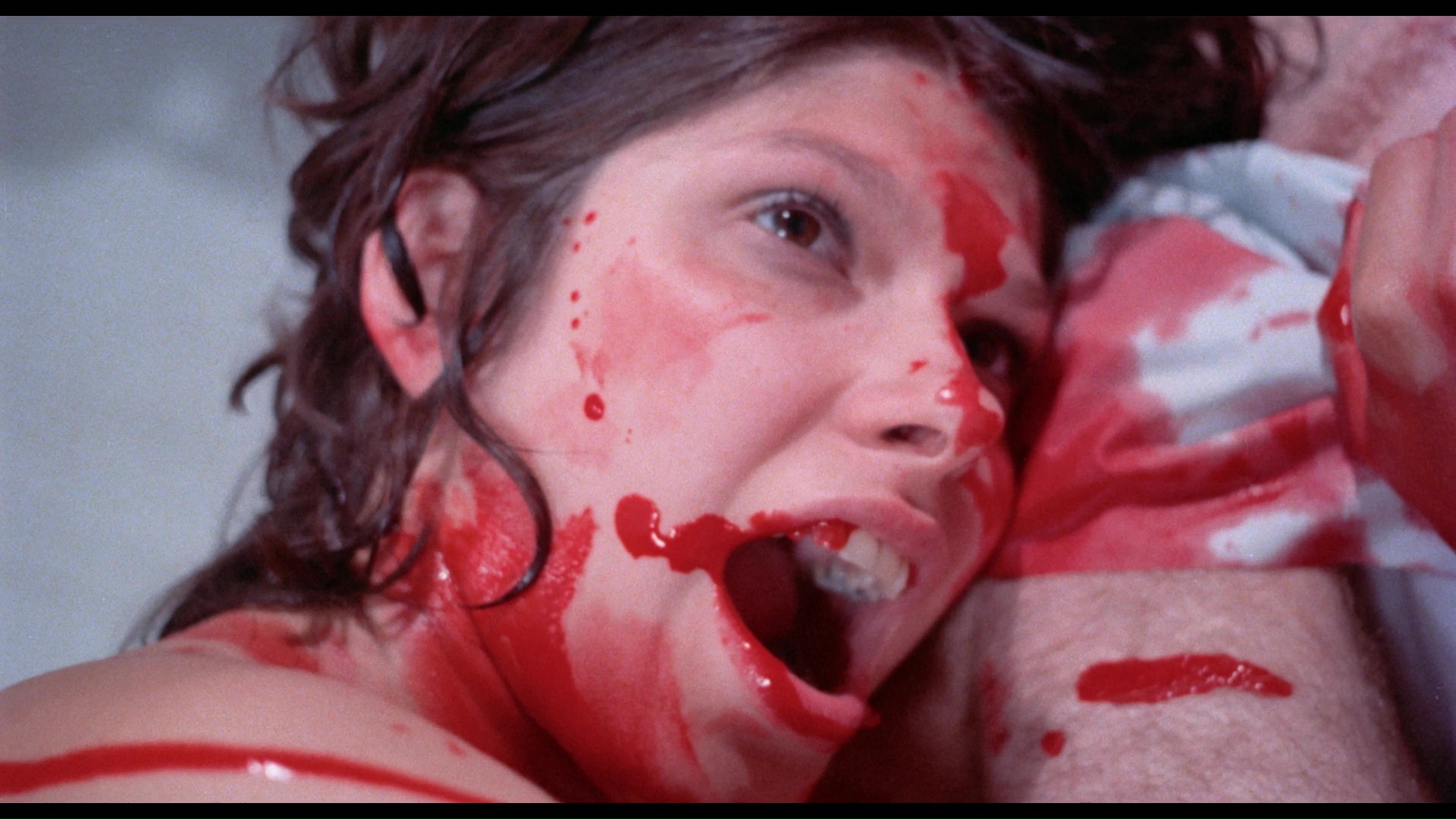 completely bald by choice under her wig), the use of Findlay's
completely bald by choice under her wig), the use of Findlay's 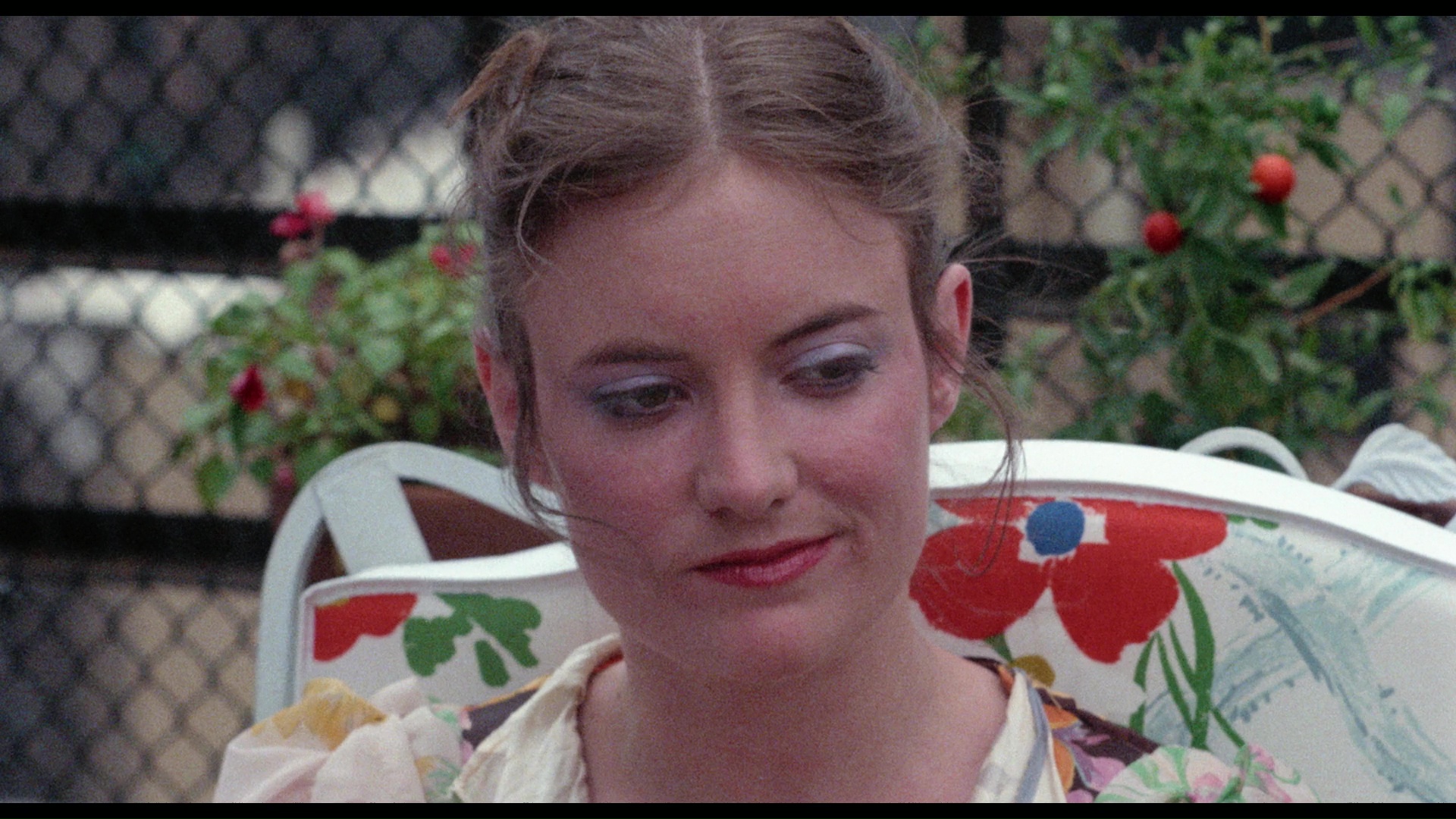 own eyes (and sometimes her back) for some of the creepier cutaways after Chung vanished from the production, the challenges of shooting at the house on Fire Island with heavy gear far away from ferry ports from Long Island, her theories on framing, her lack of skill at shooting sex scenes, the rare honesty of Caballero Video, and more. Next up is a Findlay Q&A (22m39s) from an August 30, 2017 screening at the Quad Cinema in New York, again moderated by Scott (just after they completed their commentary), covering legal wrangling over her films, more about Chung's baffling departure, her facility with coming up with good camera angles and in-camera effects on site, and her path to distributing her films on her own terms for the adult theatrical market. Finally, "Wrath of a Woman's Torment" (16m8s) features Gaunt, a.k.a. Michael Dattore (who can also be spotted in Lucio Fulci's City of the Living Dead), reminiscing about Findlay and Sear, getting stuck on Long Island Sound one night after shooting, and feeling great affection for Sync and Willoughby as well as best friend Robert Kerman (a.k.a. R. Bolla), who can be spotted briefly as a party guest. The reversible sleeve features two poster art options, both indicative of the horrific, potent nature of the film itself.
own eyes (and sometimes her back) for some of the creepier cutaways after Chung vanished from the production, the challenges of shooting at the house on Fire Island with heavy gear far away from ferry ports from Long Island, her theories on framing, her lack of skill at shooting sex scenes, the rare honesty of Caballero Video, and more. Next up is a Findlay Q&A (22m39s) from an August 30, 2017 screening at the Quad Cinema in New York, again moderated by Scott (just after they completed their commentary), covering legal wrangling over her films, more about Chung's baffling departure, her facility with coming up with good camera angles and in-camera effects on site, and her path to distributing her films on her own terms for the adult theatrical market. Finally, "Wrath of a Woman's Torment" (16m8s) features Gaunt, a.k.a. Michael Dattore (who can also be spotted in Lucio Fulci's City of the Living Dead), reminiscing about Findlay and Sear, getting stuck on Long Island Sound one night after shooting, and feeling great affection for Sync and Willoughby as well as best friend Robert Kerman (a.k.a. R. Bolla), who can be spotted briefly as a party guest. The reversible sleeve features two poster art options, both indicative of the horrific, potent nature of the film itself.